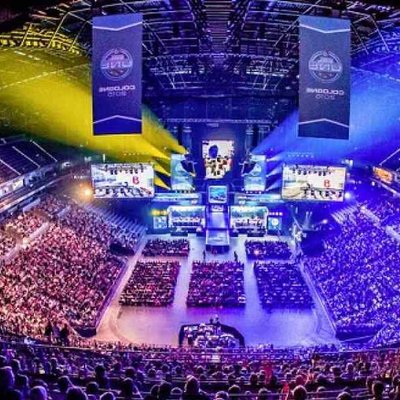Germany to introduce dedicated visa policy for esports players, facilitating international travel and entering countries where competitive video gaming events are hosted from spring 2020.
Professional players will have to meet certain conditions to be eligible for the visa, this includes being at least 16 years of age, earning over a particular amount of money as a salary, and receiving a confirmation of professional activity. The German Esports Federation has announced that it will “set up a streamlined procedure for this procedure” in cooperation with “relevant stakeholders.”
German Esports Federation president Hans Jagnow, commented on the development “The German esports visa will be a big advantage for events hosted in Germany. We are the first country to establish a dedicated visa category for esports. There are more international esports events expected to take place in Germany. This development also may serve as a model for other nations. The visa requirements for esports professionals should be harmonised internationally in order to allow easy access to tournaments and leagues for esports athletes all over the world.”
In Germany, a dedicated esports visa was introduced today: as of spring 2020, professional esports athletes from non-EU countries will be subject to an easy procedure for a permanent residency in the term of their contracts.
More information: https://t.co/hiL1Y8TApL pic.twitter.com/3KC8XI8dJT
— ESBD – eSport-Bund Deutschland (@ESBD_Verband) December 20, 2019
The esports rush is real and Germany being the first country to establish a dedicated visa category for esports players while other countries have earlier rolled out benfits for the the esports players.
To adhere the hindrances faced by the gamers with poor internet connection was the project to solve by the South Korean Government with the investment in the internet infrastructure. Broadband internet became the norm, and slowly competitive gaming began to rise after 1990s to encourage the esports players .
In US eSports players (video games) at the professional level have become such major athletic events that eSports players have been granted P-1 visas more and more often like the internationally recognised athletes . It allows the esports players to come and stay in the U.S. for up to five years, and perform for payment or prize money in the U.S.

Chinese Government officially recognised the roles of esports professionals and esports operators as official job titles in the country. In addition to that esports-related majors have also been added to the roster at a number of national colleges.
The Indonesian government recognised and started supporting esports way back in 2014 when it established the Indonesia eSports Association (IeSPA) as a formal entity under the State Ministry of Youth and Sports Affairs.
Since then they’ve supported esports in a number of ways, the biggest of which was hosting the Asian Games 2018 in which esports was a demonstration event. This is by far, the biggest platform that esports has had in the eye of the casual sports fan and it wouldn’t have happened without the support of the Indonesian government.
In Phillipines top- tier esports players are considered as bona fide athletes underneath the country’s legislation.This helps ease the players’ struggles in getting visas to LAN events in other countries- a perennial problem for esports players in the region.
The country has also established the National Sports Association (NSA) and the Esports National Association of the Philippines (ESNAP) to promote the growth of esports in the country starting with the recruitment of national team members from the inaugural league.
The Finnish Central Tax Board announced a decision to consider esports players as athletes for tax purposes soon after Phillipines.
The Ministry of Sports in Sri Lanka published the declaration following an announcement on 26 September by Harin Fernando, Minister of Telecommunications and Sports.
The Ministry of Culture and Sports of the Republic of Kazakhstan has given full accreditation the Qazaq Cybersport Federation recognizing esports as a sport in the country. This accreditation now gives the federation permission from the government to further establish esports in the country and represent it at international events.
The esports industry have grown by leaps and bounds across the world now. Not many governments have noticed and publicly supported esports, there are a many countries who have already started the trend and it will expanded by others in future.
